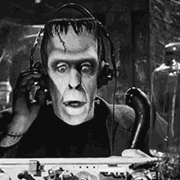|
It creates a significant pressure to find ways to make widgets that doesn't depend on the whims of a few people, which is better for reliable productivity. Or alternatively it collapses the widget market if the demands of the widget makers are too onerous for the rest of the labour force to bear, and society has to realign around limited widget availability. The latter being the structural left wing form of environmentalism and workplace safety.
|
|
|
|

|
| # ? Apr 29, 2024 13:56 |
|
OwlFancier posted:It creates a significant pressure to find ways to make widgets that doesn't depend on the whims of a few people, which is better for reliable productivity. For sure, but shifts in demand can take years to resolve in some cases, which IMO has a real danger of re-establishing a class system. (again, the software developer example - there's still a shortage that is causing insane labour market effects and ridiculous inequality, despite efforts to resolve the problem for at least the last 10 years). quote:Or alternatively it collapses the widget market if the demands of the widget makers are too onerous for the rest of the labour force to bear, and society has to realign around limited widget availability. The latter being the structural left wing form of environmentalism and workplace safety. I get what you're saying, but I feel like this almost requires the economy to be centrally planned - in any situation where there's some sort of market, it doesn't seem possible, or at least practical, to dictate that demand ceases to exist. Is central planning essential to socialism (or at least the perspective you're arguing from?) I suppose there's a case where society collectively decides that widgets just aren't worth it - which I guess is possible but not particularly realistic in my mind. Maybe this is pessimistic, but I feel that people would be perfectly OK with accepting that a good that they get significant utility / enjoyment from is created by a company who treats their workers unequally - particularly one that they have no part of. enki42 fucked around with this message at 13:24 on Nov 5, 2020 |
|
|
|
enki42 posted:Even if you assume that lower-paid workers are always going to outnumber the workers who are currently highly paid (which probably makes sense for every business I can think of), couldn't demand for labour create inequalities that companies (in the worker-owned, democratic sense) are forced into? Generally under a controlled/centralized economy initiatives can be undertaken to provide education in widget creation and incentives for entering the field. "Wouldn't almost everyone want to be a widget creator then?" Yes, but socialism can accommodate that to a better degree than capitalism because the work model is different - instead of being trapped in one job working almost the entire day, people would spend comparatively tiny chunks of their time productively on a combination of projects they are assigned and do voluntarily. So in the end you would have people working together in different shifts creating widgets, a high volume of workers dedicating a tiny portion of their time each and moving on to rest or the next project when they're done. Catgirl Al Capone fucked around with this message at 13:25 on Nov 5, 2020 |
|
|
|
I don't think so, for both reasons, if the economy is bottlenecking around some kind of production limitation then either the production limitation will be overcome, or it won't, in which case why would a decentralized economy not reorient around productions that are not bottlenecked? If anything wouldn't you consider the tech boom to be a problem of centralization as all the investors hop on the same bandwagon? Isn't that why those sorts of booms/bubbles tend to crash afterwards? Because they're just trying to make as much money as fast as possible without regard for the long term viability of the business? If businesses are in the hands of local groups of workers surely there would be less impetus to have everyone making loving apps?
|
|
|
|
I think separating how much of the tech boom is a gold rush type behaviour driven by capital, vs. a genuine growing demand for tech is hard to unravel. I do think there's an increased demand for tech outside of just VC-driven app building, but I can also see how it's not the best example. But I think you could make the same argument for specialized doctors, or technicians with particular, in-demand skills. There's always going to be situations where certain types of labour are in higher demand than other types and those will inevitably create situations where those workers have leverage, and at least some of them will inevitably seek to use it for their own benefit.
|
|
|
|
Yes there will always be people whose skills are very desirable and that affords them greater bargaining power, but they're still bargaining against the rest of the labour force and so you are, at least, getting an actual fair market value for their skills. If they are taking the piss to the point they annoy everyone they work for then I think you are more likely to get an economic realignment away from things that require them on the basis that the grief they give everyone they work with is not worth the effort. As opposed to under capitalism where so long as they make the owners more money all the other workers can eat poo poo. It may not be perfect but I think it sounds like an improvement?
|
|
|
|
human garbage bag posted:I think we can both agree that it takes more training to be a doctor than to be a janitor. So the doctor needs to be compensated for the extra time they spend training compared to the janitor. Or the doctor could be paid for training as if they were actually working. And if the doctor has to work more hours than the janitor because there is a shortage of doctors then they should be compensated for the time they are working. I think the bolded is more logical, and is less prone to breaking down completely when we switch from talking about petit boug administrators or professionals and start talking about the CEOs and shareholders.
|
|
|
|
gently caress em. Bosses salaries/compensation should be capped at the lowest salary within their organization.
|
|
|
|
A lot of these posts seem to hint at, or address, or be concerned about the existence of a market or money-based economy under socialism. For example, the concern about janitors vs. doctors under a socialist economy was concerned about potential inequalities and differences in pay, and that in order to satisfy certain labor market conditions, certain jobs would have to accept differential pay scales. But what if there could be a way to completely do away with pricing and a money market system? But without the inefficiencies of some centralized Gosplan that might mess up and get completely wrong signals about what every part of the economy needs? If you think about it, the money signal is not very good. A dollar doesn't tell you where something needs to go, or how much of a thing is needed. It's just there as a blank - a way to represent exchange value for different commodities. If we could get by on barter it would be more efficient to just exchange needed goods directly. What if we could do that? I think we have the solution at hand right now -- the communication protocol. A socialist economy that depends heavily on automation with an already-existing industrial internet of things could develop an interoperability protocol that links together "point of sale", purchase request systems, shipping trackers, and other logistics, such that whenever an item was "needed" at the end-point of a user, it could cascade a set of orders and commands that would trickle up the chain of production all the way to the raw material producers. Currently we have a whole myriad of separate systems for these logistics, which are all tied together with companies trying to maximize their dollars going in. With an "Industrial Interoperability Protocol" a socialist economy could do away with trying to divine supply and demand needs using market signals and operate directly on the level of raw inputs and outputs.
|
|
|
|
Are there good examples of non-market based economies that have worked out well in practice though (without either being hugely inefficient or without ad-hoc markets being created outside of the official channels)? It all works fine at a theoretical level, where "needs" are an abstract concept where it's easy to say "each person needs 4 units of sustenance" or whatever, but it seems really difficult to determine appropriate "needs" when it comes to entertainment, leisure or luxury, which I would hope would exist in some capacity (hopefully a far more equitably distributed one). I do think there's a place for something like (a well functioning version of) the Cuban system, where basic goods and necessities are more directly managed, but even there there's a thriving market alongside the centrally planned system.
|
|
|
|
I believe that's what cybernetics was but I don't think many people have attempted to pursue it seriously on a state sized level for many decades because everyone in power believes markets are the best axiomatically. You could probably adapt internal industrial equivalents however given that there are corporations out there that are on the level of small countries. I don't see why you couldn't take advantage of modern electronic networking to do a centrally planned economy nowadays, they once made a surprisingly effective high level economic model of the UK using water. But again nobody seems super interested in modeling that sort of thing any more outside of "how can we exploit it to get free money" I would prefer a decentralized system though. Efficiency be damned, the important thing is people's welfare, capitalism is extremely good at maximising production, the problem is that it it is not good at deciding what should be produced or how it should be produced so that both the end product and the mode of production meets people's needs. It produces poo poo that breaks because that facilitates more production, more purchasing, more economic activity and economic activity is how the people at the top siphon off their profits. It keeps people working long hours and then sells them solutions to their lack of time, because the alternative of people solving their own problems does not enrich the people at the top. Centralization I think leads to that sort of thinking, you put some people in charge of making country-wide decisions about production and relegate others to being told what to do and that's a recipe for recreating the system we have. Less economic activity is not a bad thing, people working less is not a bad thing. OwlFancier fucked around with this message at 17:21 on Nov 5, 2020 |
|
|
|
Hey, I just wanted to pop in a say thanks to everyone for your questions and contributions! I'll be adding more to the OP later tonight (if the election doesn't completely side-track me). If anyone sees any posts that they think should be included in it, please speak up. For example, from just a quick perusal I think this post: would be a helpful addition as it explains Marxist views on how the world changes. That doesn't mean there aren't other posts that also should be added! So if you see something that was particularly helpful, you can just quote it and say you think it should be added to the OP. More importantly, nobody's posts will be taken without permission, and you will be attributed.
|
|
|
|
OwlFancier posted:I don't see why you couldn't take advantage of modern electronic networking to do a centrally planned economy nowadays, they once made a surprisingly effective high level economic model of the UK using water. But again nobody seems super interested in modeling that sort of thing any more outside of "how can we exploit it to get free money" Allende's government in Chile was using computerized central planning: https://en.wikipedia.org/wiki/Project_Cybersyn quote:The system was most useful in October 1972, when about 40,000 striking truck drivers blocked the access streets that converged towards Santiago. The strike was supported by the Patria y Libertad group and at least partly funded by private donors who had received money from the CIA.[3] According to Gustavo Silva (executive secretary of energy in CORFO), the system's telex machines helped organize the transport of resources into the city with only about 200 trucks driven by strike-breakers, lessening the potential damage caused by the 40,000 striking truck drivers.[4] Obviously a socialist using a computer to beat the CIA couldn't be allowed so they had him couped.
|
|
|
|
OwlFancier posted:I would prefer a decentralized system though. Efficiency be damned, the important thing is people's welfare, capitalism is extremely good at maximising production, the problem is that it it is not good at deciding what should be produced or how it should be produced so that both the end product and the mode of production meets people's needs. It produces poo poo that breaks because that facilitates more production, more purchasing, more economic activity and economic activity is how the people at the top siphon off their profits. It keeps people working long hours and then sells them solutions to their lack of time, because the alternative of people solving their own problems does not enrich the people at the top. Centralization I think leads to that sort of thinking, you put some people in charge of making country-wide decisions about production and relegate others to being told what to do and that's a recipe for recreating the system we have. This is where I think that basing a socialist economic system on extensive automation and facilitated with a digital protocol would excel, in fact! I could see smart contracts being used as a decentralized way to ensure that orders for goods and services are routed and executed as needed. So, for example, if I have a state-owned store and several people come in to buy tomatoes and mason jars because they all read an article and are now into a fad of home-preserving your own basil tomato sauce, every time they walk out of the store with a bag of tomatoes and a mason jar, I would ring them up at the counter by scanning the UPC codes on all of the items. Every time I do so, the POS device at the checkout counter talks to the shipment supplier's computer and says that state-owned store ABC needs X units of tomatoes and Y units of mason jars, with a digital signature that stamps that this unique store ABC made this unique order at this unique time. Then the supplier bundles together the accumulated requests and sends them on their way. When I receive these shipments from the truck, the system closes the order by uniting the unique shipment with the uniquely stamped request, thereby fulfilling the smart contract. The supplier would have their own system running on the same protocol and it would talk to the computers for their suppliers as well, all the way down the chain.
|
|
|
|
DrSunshine posted:This is where I think that basing a socialist economic system on extensive automation and facilitated with a digital protocol would excel, in fact! I could see smart contracts being used as a decentralized way to ensure that orders for goods and services are routed and executed as needed. Basically, what if we took all the big data that Google and Amazon have invented to drive profit, and instead refitted them for efficiency instead of exploitation?
|
|
|
|
Cpt_Obvious posted:Basically, imagine if we took all the big data that Google and Amazon have invented to drive profit, and instead refitted them for efficiency? A bit deeper than that. Google et al's data harvesting runs at a higher level than what I'm proposing. They harvest and monetize user behavior, like click-throughs for ads, and sell this data to advertisers via behavioral prediction markets. What I'm talking about isn't necessarily related to predicting the behavior of consumers in any way, but a protocol to ensure that goods are manufactured and delivered to where they need to go.  It'd live, I think, somewhere in the 6th or 7th layer of the OSI model. The protocol would be a kind of cryptographic handshake between two endpoints that ensures that specific demand and supply signals are paired up and executed in every instance. So you could actually ensure, if you wanted or bothered to investigate the contents of the "industrial packet", that the soda bottle you get from the store is actually, literally linked to a particular soda bottle that was made at a factory at some point in time. I see it as a kind of TCP/IP for industrial-scale production, where at some point in the chain, the act of purchasing a soda bottle links directly to the signal that makes a robot arm grab an item off of a conveyor belt. It's not a "big data" solution, but rather an "infrastructure solution", which takes the job of purchasing, requisitioning, or planning out of human hands and puts it into the hands of automated signals. DrSunshine fucked around with this message at 18:29 on Nov 5, 2020 |
|
|
|
I think at the small scale -- between people, ad-hoc groups and communities, etc -- markets as a useful technology will persist long after The Market is gone. A market is a tried and true distributed system for determining specific demand. That said, I really do agree with DrSunshine's outlay here and will take an extra step in saying that that's already how most, if not all, of the internal production and logistic structure of the major firms in the global economy works today. Every point of sale transaction of an iPhone or solar panel or Toyota Corolla or whatever bubbles back up (down?) through massive Just-in-Time manufacturing and distribution networks that produce exactly (or, at least, pretty close to) what's needed, when it's needed, and deliver it to where it's needed. They mesh with hundreds or thousands of other similar networks and thousands or tens of thousands of suppliers. It's important to mention, too, that large parts of this are not (and may never be) fully automated! A lot of this operates over human labor and works out perfectly fine, and by all accounts is a superior system. In fact, whenever anyone tries to import capitalist market principles into their business model it tends to fail spectacularly. The transition from a market-based economy to a need-based economy doesn't need to be that difficult or complicated. Most of the work is already done! You just lop off the part where people exchange money for goods and services and instead tie those interactions directly in to the supply chain. Maybe you mediate it with labor vouchers or item limits or something, which might be very necessary for difficult to produce, highly useful or desirable goods.
|
|
|
|
BoldFrankensteinMir posted:Personally, I think people don't need to have greedy desires "generated" by anything, it's the natural state of man, This was posted after I went to bed but I still want to address this because it's pretty important: this, as far as we're able to tell, just isn't true. Humans, as animals, are incredibly cooperative and (more importantly) altruistic. Material hoarding of wealth wasn't even possible until the neolithic revolutions of agriculture and animal husbandry, and primitive communities were (and still are, where they exist) totally communal. Everyone helps out, everyone is taken care of. We also see this very often in crises where society breaks down to a significant degree. People always expect Mad Max, but we end up getting -- for the most part -- people cooperating to help each other get through the tough times. Greed isn't some sort of intrinsic part of human nature. If anything, greed is antithetical to human nature, and has only been imposed on us through the material conditions we find ourselves in -- which is to say, the material lack that has existed since the dawn of agriculture and persists through capitalism. The evidence all suggests that if we remove that material lack one way or another, the "human nature" of greed turns out to not be so natural or core to ourselves as humans. Once again, capitalism has colonized our minds so thoroughly that it convinces us that the singular evil it imposes on every human interaction is actually a fundamental piece of what it means to be human. This is not the case.
|
|
|
|
quote:Once again, capitalism has colonized our minds so thoroughly that it convinces us that the singular evil it imposes on every human interaction is actually a fundamental piece of what it means to be human. This is not the case. I don't think you can pin hoarding and a desire for consumption on capitalism specifically, since it predates it by a long time. For sure you can make the argument that very small primitive societies tend to be communal, but IMO the reason that modern societies tend not to be communal has more to do with our group dynamics breaking down once you have a sizeable amount of people. If you're a greedy rear end in a top hat who hoards things in your society of 50 people, you'll become an outcast pretty quickly. If you're an rear end in a top hat in a city of a million, or a country orders of magnitudes larger, a few people you don't have to interact with pretty much ever think you're an rear end in a top hat.
|
|
|
|
no, to be clear, I am not blaming greed on capitalism, just material lack. I am, however, saying that capitalism leads us to believe that greed is a fundamental component of humanity, when we know this just isn't the case. Additionally, it's not just the lack of a punishment mechanism for hoarders that causes greed in modern capitalist societies, it's that the economic system is structured in such a way that hoarding wealth is far and away the optimal behavior.
|
|
|
|
Lotta these posts can be best answered by what o think is an engels quote thatís basically ďitís not our job to write recipes for the chefs of the future.Ē Basically itís almost impossible to imagine a society that is run free of capitalist markets while living in a society that is materially defined by them. We need to have a vision of the future but whatever changes we make to improve society and alter how we reproduce it, theyíll ultimately have to be changed and modified later too. Thatís just dialectics. Whatís more important imo is how do we change society to put power on the hands of the working class. At this moment there is no mass socialist or workers party that can serve as a mass pole of attraction for socialists and socialist ideas. Thatís really the primary goal of socialists right here and now is to build such a party, made up of unions, grassroots organizations, etc which unified elections with protests and strikes. Until we have a means to actually fight for power effectively and even win it itís kind of fruitless to imagine what society will look like after the final and complete victory of socialist ideas imo.
|
|
|
Pentecoastal Elites posted:Greed isn't some sort of intrinsic part of human nature. Again, I greatly appreciate your optimism, but my personal experiences in life have repeatedly screamed the opposite to me. Now, if that's the result of just living inside Capitalism's fun-house mirror, I can maybe see that. But so what? It's not like we can wipe that away at this point, the damage is already thoroughly done. I don't see the value in guessing what people would have been like if Capitalism had never happened in the first place because it clearly did, we ended the Holocene era with it for pete's sake. Even if you're 100% right and greed is just the result of a false scarcity enforcing system, you can't write it off because it's not "natural". Is it not human nature to farm and build permanent structures just because we didn't used to do it?
|
|
|
|
|
It's important to make the distinction because if greed is intrinsic then the whole project's bust: we'll never achieve anything better than what we've got now because humans will inevitably reproduce societies in which greed can be expressed in the same way that they'll produce farms and permanent structures because the need for a constant food supply and protection from the elements are also human nature. If greed isn't part of human nature, if it's something that arises from material conditions -- even if those material conditions are tens of thousands of years old -- it means that it can be overcome by changing the material conditions. We've seen this is the case in the archeological record, and in societies where, by chance, the material conditions are such that they're still in a preagricultural state. Communism says you can get there by going through, so to speak: you can advance society to a point where we return to a communal structure where all material needs are met by collective action. Pentecoastal Elites fucked around with this message at 19:32 on Nov 5, 2020 |
|
|
Pentecoastal Elites posted:It's important to make the distinction because if greed is intrinsic then the whole project's bust: we'll never achieve anything better than what we've got now because humans will inevitably reproduce societies in which greed can be expressed in the same way that they'll produce farms and permanent structures because the need for a constant food supply and protection from the elements are also human nature. It almost seems like you're saying there's an immutable human nature underneath our social evolution that doesn't change and can always be reverted to? So what, the ultimate goal is to revert to Bonobo chimps? What stage of our evolution do you set as "the real normal Humans" and why? It really seems like anthropological cherry-picking to say "oh this is the real state of humans, the one that fits my political ideology the best'. Animals horde stuff. Animals steal from each other, constantly. If anything, humans acting humane towards each other is a very brief bubble in the 3.5 billion year history of life on Earth. I'm not saying this is bad, it's great! I'm all for a more humane society! But we don't need this dumb idea of "oh it's our natural state to be kind and unselfish", it's patently untrue AND it sabotages our primary engine of growth towards such a society, which is us building up a better nature for ourselves despite our instincts, not leaning on what we used to be as a lost ideal.
|
|
|
|
BoldFrankensteinMir posted:It almost seems like you're saying there's an immutable human nature underneath our social evolution that doesn't change and can always be reverted to? No it doesn't? O_o Just because the claim is that greed is not immutable, it does not follow that generosity is immutable. You seem to agree already that prevalence of greed or generosity is a function of material conditions, so this should not be a controversial claim.
|
|
|
|
Ruzihm posted:You seem to agree already that prevalence of greed or generosity is a function of material conditions, so this should not be a controversial claim. I do not, I have seen people horde massive piles of stuff and live in permanent fear of poverty despite their being extremely well-off and those concerns being completely nonsensical. I think greed persists no matter the material conditions of a person's life, because it's a simple animal response that exists inside their own head first and foremost, like the urge towards anxiety-driven binge-eating when you're not hungry. Ever left a dog alone with an open bag of food? It's in no way beneficial for them to gorge themselves until they throw up, there is no real scarcity in play, but they do it anyway on instinct.
|
|
|
|
|
Rad thread.BoldFrankensteinMir posted:Again, I greatly appreciate your optimism, but my personal experiences in life have repeatedly screamed the opposite to me. Now, if that's the result of just living inside Capitalism's fun-house mirror, I can maybe see that. But so what? It's not like we can wipe that away at this point, the damage is already thoroughly done. If rapacious greed and stepping on the downtrodden is an intrinsic part of human nature then there's no point in improving governance. It's like theorizing that I'm just a Boltzmann brain, floating in the void, having vivid hallucinations about posting. I can't disprove it, but if it's true then nothing I do matters; the only sane choice is to act like it isn't, just in case. BoldFrankensteinMir posted:I do not, I have seen people horde massive piles of stuff and live in permanent fear of poverty despite their being extremely well-off and those concerns being completely nonsensical. I think greed persists no matter the material conditions of a person's life, because it's a simple animal response that exists inside their own head first and foremost, like the urge towards anxiety-driven binge-eating when you're not hungry. Ever left a dog alone with an open bag of food? It's in no way beneficial for them to gorge themselves until they throw up, there is no real scarcity in play, but they do it anyway on instinct. But it is beneficial: it is in response to the distinct possibility that there won't be any food later, so stock up now. It's just another material condition. That there's no material scarcity in play is part of the point - just like dogs, people aren't rational.
|
|
|
BoldFrankensteinMir posted:I do not BoldFrankensteinMir posted:If anything, humans acting humane towards each other is a very brief bubble in the 3.5 billion year history of life on Earth. I'm now pretty unclear on where you stand on the question of if humans have gotten less needlessly greedy of late.
|
|
|
|
|
BoldFrankensteinMir posted:Animals horde stuff. Animals steal from each other, constantly. If anything, humans acting humane towards each other is a very brief bubble in the 3.5 billion year history of life on Earth. I'm not saying this is bad, it's great! I'm all for a more humane society! But we don't need this dumb idea of "oh it's our natural state to be kind and unselfish", it's patently untrue AND it sabotages our primary engine of growth towards such a society, which is us building up a better nature for ourselves despite our instincts, not leaning on what we used to be as a lost ideal. Animal behavior is incredibly complex and is especially in social animals who display signs of understanding of concepts like equity and empathy. https://www.iflscience.com/plants-and-animals/rats-chose-friendship-over-food/ There's a wide breadth of study being conducted on the behavior of social animals, its fascinating, its hard to say anything definitive without landing into anthropomorphizing but what we can say is that there is no evidence that animals hoard and steal as some form of innate "greed" Similarly, studies on human altruism point toward different outcomes than greed being innate https://www.pnas.org/content/early/2014/11/12/1408988111 https://www.nature.com/articles/nature11467 Your argument that human greed is innate is based on the behavior you observe of persons operating in a system that explicitly promotes and produces that behavior.
|
|
|
|
BoldFrankensteinMir posted:It almost seems like you're saying there's an immutable human nature underneath our social evolution that doesn't change and can always be reverted to? So what, the ultimate goal is to revert to Bonobo chimps? What stage of our evolution do you set as "the real normal Humans" and why? It really seems like anthropological cherry-picking to say "oh this is the real state of humans, the one that fits my political ideology the best'. It seems like you're trying to engage with what you think I mean instead of what I'm actually saying. Let's be clear here: you are the one saying that there's a human nature, and specifically one that involves "greed", based off your personal experience. I'm saying based on the prehistorical, anthropological, and direct firsthand reported experience of both contemporary preagricultural societies and people in times of crises and disaster, we cannot identify any sort of "human nature" that includes greed. But greed is clearly something that exists -- so, if it's not an intrinsic part of what it means to be human, where does it come from? Also, altruism and cooperation aren't like these totally mysterious things that arise specifically due to human society. Many vertebrates exhibit altruistic behavior. More so with mammals. Even more so with primates. Humans are especially cooperative and altruistic. That's one of the reason we're actually able to form societies in the first place. It's important to recognize this because arguing from the position that every individual human is some sort of horrific slavering beast kept nominally in check by a society that promotes cooperation and altruism (that was somehow constructed by said beasts) is arguing from a bad foundation. BoldFrankensteinMir posted:I do not, I have seen people horde massive piles of stuff and live in permanent fear of poverty despite their being extremely well-off and those concerns being completely nonsensical. I think greed persists no matter the material conditions of a person's life, because it's a simple animal response that exists inside their own head first and foremost, like the urge towards anxiety-driven binge-eating when you're not hungry. Ever left a dog alone with an open bag of food? It's in no way beneficial for them to gorge themselves until they throw up, there is no real scarcity in play, but they do it anyway on instinct. I think you're conflating mental illness with an idea of human nature here -- or rather, trying to explain bizarre behavior you've seen or experienced in your life. You're also attributing very disparate behaviors to "greed". You're not binge-eating because you're trying to sate some distantly-imagined starvation period (even if the very deep biological processes might be fueling the endorphins you get from doing so), you're doing it to try to assuage the anxiety you're feeling about something or other. You're doing it because it feels good and makes the anxiety less uncomfortable. You're not engaging the same deep processes when you're skimming your workers' paychecks so you can buy another sports car. The dog is eating because the food bag is open and it thinks kibble tastes really good, it doesn't have the fundamental brain structures to be greedy about food in the same way that a capitalist is greedy about wealth. World War Mammories posted:But it is beneficial: it is in response to the distinct possibility that there won't be any food later, so stock up now. It's just another material condition. That there's no material scarcity in play is part of the point - just like dogs, people aren't rational. Pentecoastal Elites fucked around with this message at 20:00 on Nov 5, 2020 |
|
|
Ruzihm posted:I'm now pretty unclear on where you stand on the question of if humans have gotten less needlessly greedy of late. Okay I see what you mean now. The distinction I'm getting hung up on is between actions and intents. I agree that we act less needlessly greedy than we did as dumb animals, but the part I can't agree with is that our intents are less needlessly greedy. I think the real success has not been in changing our desires but in learning not to always humor them. Our gains are made despite our instincts, not in getting back to them somehow. All in all I agree with most of the posters ITT about what we should do and how we should get there, I really do. My issue is in saying that it's gonna be a natural thing for us and it'll just feel right because a fair society is what we all inherently desire. I've just met too many people who display zero signs of that, and I know that if we make advances towards a fairer society it will be in direct opposition to their deepest held beliefs. If anything, it's MORE impressive that we find the way to be kind against our instincts, rather than just saying "oh the bad stuff was a smokescreen, this is what we're really like inside". Overcoming your worst instincts is a very hard process, that's the part I worry we lose sight of when we assume our "real" instincts are the good ones we like.
|
|
|
|
|
Ciprian Maricon posted:Animal behavior is incredibly complex and is especially in social animals who display signs of understanding of concepts like equity and empathy. None of this actually backs your argument, but this whole line is besides the point. It True Nature of the Heart of Man is only relevant if you're a weirdo anprim making Biotruth arguments about socialism. Instead of trying to use the immortal science of marxism-lenism to create a better man, why not instead say you'd like to create a society that discourages certain behaviors by design (and prohibits others by law)?
|
|
|
|
Pentecoastal Elites posted:It seems like you're trying to engage with what you think I mean instead of what I'm actually saying. Greed isn't an immutable force lol. Greed is entirely subjective, it's meaningless to say it is or is not intrinsic. edit: i swear to god ive seen polyamorist weirdoes call people "greedy" for not wanting their partners to gently caress other people.
|
|
|
|
I'm not at all interested in what you've heard other people define greed as. I'm talking about greed in the sense of having a base need to hoard material wealth.Slanderer posted:why not instead say you'd like to create a society that discourages certain behaviors by design (and prohibits others by law)? Because it's important to understand what the scope of the project is and what can actually be done. If greed is an intrinsic part of what it means to be human, I'm never going to build a society that isn't subverted by greed. The best, and most stable, and most harmonious society would be one where our fundamental needs are aligned with the production of that society. The communist argument is that our actual needs (food, shelter, community, something to do, etc etc) align and are satisfied by communism. If the expression of greed is a fundamental need, that can't be true.
|
|
|
|
Slanderer posted:None of this actually backs your argument, but this whole line is besides the point. It True Nature of the Heart of Man is only relevant if you're a weirdo anprim making Biotruth arguments about socialism. Instead of trying to use the immortal science of marxism-lenism to create a better man, why not instead say you'd like to create a society that discourages certain behaviors by design (and prohibits others by law)? Come one man, I get where you're coming from but I'm just trying to point out to this dude that the biotruths idea that animals/people just love to hoard money/food isn't true and some studies where animals share food and people forego money for the benefit of others is a perfectly reasonable take on that. We can talk about the problems with the idea of "innate greed' and what we can really deduce from those studies another point in time.
|
|
|
|
Yeah you guys calling it "biotruths" does hit home, I had not thought of it that way and I'm reconsidering now. But I feel like saying the opposite, that generosity is the natural state of man, also qualifies as that. In the interest of a more productive argument, I'll just say I hope you're right and it is possible some day.
|
|
|
|
|
enki42 posted:Widget makers in that scenario would have a lot of leverage when deciding which company they wanted to work for. They'd easily be able to say "I'll work for whoever wants to give me an outsized share of the profits of the company (or better wages / less hours / whatever they want). From the perspective of the company, it makes sense to do this - otherwise they can't produce widgets, and their company can't function. Given the choice between accepting inequality, or being completely unable to produce anything of value, they'll begrudgingly accept inequality. You would simply make it illegal for anyone to own a disproportionate share of a company and mandate that there always be an equal split. The benefit you describe wouldn't be legal to provide. edit: And for better wages/less hours, you could at least limit the problem by having reasonable mandated minimums. This doesn't solve all the problems inherent to markets, but it's dramatically better than the status quo.
|
|
|
|
BoldFrankensteinMir posted:Yeah you guys calling it "biotruths" does hit home, I had not thought of it that way and I'm reconsidering now. But I feel like saying the opposite, that generosity is the natural state of man, also qualifies as that. This is a very productive argument. Don't sell yourself short! These types of discussions are the exact reason why this thread is here. More to the point, I think Socialism views humans as naturally social. That is, there is sort of a  that humans can and must relate to one another. Some might call it love, but it can also be aggression. The point is, it is incredibly natural humans to interact outside of just reproduction. If there is a universal truth about humans, it's that we keep building societies. Because if there's no one to talk to, we'll just paint a face on a volleyball and talk to that instead. that humans can and must relate to one another. Some might call it love, but it can also be aggression. The point is, it is incredibly natural humans to interact outside of just reproduction. If there is a universal truth about humans, it's that we keep building societies. Because if there's no one to talk to, we'll just paint a face on a volleyball and talk to that instead.Greed, specifically, is one of the many results of our specific society. We come from a society that values greed, and therefore we replicate it in our values and economic systems. So if you want to get rid of greed as a societal construct, you must change the way society functions.
|
|
|
|
It feels like y'all are just finding ways to make socialism sound like it's supposed to be this exciting high-stakes millenarian turnaround in order to assign artificial meaningfulness to the debate. But socialism is simple and boring. It's downright anti-excitement, mainly alleviating stressful uncertainties and providing people that bit more control over their lives. Things are going to stay the same much more so than they are going to change, people themselves would still be greedy and shortsighted assholes and so on. The thing is, under capitalism the greed of 80-90% of the people counts for next to nothing. They can't accumulate much, no matter how greedy and self-serving they are as people. They don't become captains of industry, they work menial jobs for little pay until their health fails like everyone else does, both the saints and the sinners. People's individual vices or "human nature" have never ever decided what society looks like. The question that decides everything is: how do people have to be organized in order to outproduce and militarily defeat the dominant mode of production and social organization? A successful socialist society can only be organized along those lines: it has to take what works in capitalist society and replace what doesn't with something more effective. It cannot start out as a nice society of nice people at all, it's necessarily going to be a rather harsh society marked by a generational trauma about the preceding violent and chaotic times. Ultimately, the ability to force others to do as you do is all that really matters. Marxism just predicts that at this point in history, no one could materially defeat a society where industrial workers are the ones forcing their will on everyone else. It doesn't imagine those workers' better nature to be in charge at all, it predicts their naked self-interest and hatred and vices and fears to lead them to force everyone to build and join classless societies.
|
|
|
|

|
| # ? Apr 29, 2024 13:56 |
Cpt_Obvious posted:This is a very productive argument. Don't sell yourself short! These types of discussions are the exact reason why this thread is here. Okay so are you saying ALL greed is the result of social conditioning? Or just that our cultural prevalence of it is? I can see the latter but not the former. Because again, squirrels horde food, and they forget where like 4/5 of their food caches are every year which seems like a pretty clear-cut example of desire outstripping actual material need. Unless your argument is that the squirrel is justified in hedging his bets against disaster, in which case why not argue the billionaire humans are doing the same thing?
|
|
|
|



























